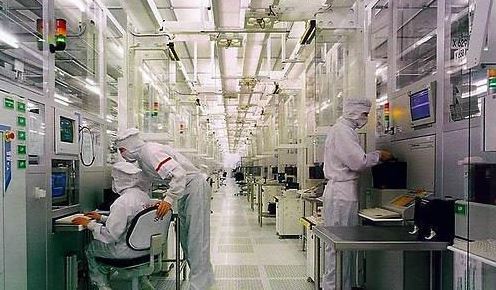Korea eyes WTO suit over Japan’s move against Korean chips
Amid diplomatic row, Tokyo announces restriction of its exports of high-end chemical to Korea
By Song Su-hyunPublished : July 1, 2019 - 17:19
South Korean government will sternly deal with Japan’s move to restrict exports of high-tech materials to Korean chip and display makers, and is considering filing a lawsuit with the World Trade Organization against the neighboring country, the Ministry of Trade, Industry and Energy announced Monday.
“The government will seek stern measures including legal measures in terms of international and domestic laws, including filing a complaint with the WTO.” said Trade Minister Sung Yun-mo after holding a ministerial meeting upon Japan’s move.
“The government will seek stern measures including legal measures in terms of international and domestic laws, including filing a complaint with the WTO.” said Trade Minister Sung Yun-mo after holding a ministerial meeting upon Japan’s move.

Japan’s Ministry of Economy, Trade and Industry said earlier the same day that it would strengthen regulations on the country’s exports of three key materials to Korea’s semiconductor and display makers for use in high-tech devices like smartphones and TVs, starting Thursday. The move came amid worsened diplomatic relations between Seoul and Tokyo after the Korean Supreme Court’s ruling on compensation for Japan’s wartime forced labor.
Protesting the move immediately, Korea’s Vice Foreign Minister Cho Sei-young on Monday summoned Japanese Ambassador to Seoul Yasumasa Nagamine.
Vowing strong countermeasures, Sung argued Japan’s latest restriction was an economic retaliatory measure that violates the democratic principle of separating legal, administrative and judicial powers.
“Such export restriction goes against the WTO agreement and goes against the G20 Summit declaration that highlighted efforts to establish a free, fair, non-discriminatory, transparent, predictable and stabilized trade and investment environment and to open the market.”
Japan’s announcement was made eight months after Korea’s highest court ruling, and one day after the leaders of the two Koreas and the US held a historic meeting at Panmunjom right after the G-20 Osaka Summit.
The Japanese government said it will apply stricter rules for approval for exporting photoresists, hydrogen fluoride and fluorinated polyimide to Korean companies.
“The Korean government has worked together with the related industry players in order to diversify imports, expand domestic production of the materials and develop Korea’s original products,” the Korean trade minister said. “It will continue making the efforts in order to minimize the impact on the Korean companies.”
With Japan delisting Korea from a whitelist that has benefited 27 countries with simplified export regulations, each export contract involving one of the three chemical materials will now take at least 90 days for government approval. Korea’s major chipmakers and display manufacturers including Samsung Electronics, SK hynix, Samsung Display and LG Display are likely to be affected.
Photoresists are the core materials for photolithography, part of the chipmaking process. Hydrogen fluoride is used for the etching process of chipmaking. Fluorinated polyimide is a key material in making flexible organic light-emitting diode display panels.
More than 90 percent of the materials used by Korean firms are from Japan, according to the related industries.
Korea’s chipmakers expressed concerns over the restrictive measure protracting in light of soured relations between the two nations.
“Due to the characteristics of the chemical substances, chipmakers usually maintain one or two months’ worth of inventory,” said an official at a Korean semiconductor provider. “However, if the restriction is held for a longer period than expected, that could hurt chip production in the long run.”
Another industry official described it as a challenge that the Korean chip industry has been facing due to recent uncertainties in global trade and diplomatic relations.
“As soon as we heard that the US and China might ease the trade tensions, we are now faced with another risk from Korea-Japan relations,” said an industry insider.
By Song Su-hyun (song@heraldcorp.com)



![[AtoZ into Korean mind] Humor in Korea: Navigating the line between what's funny and not](http://res.heraldm.com/phpwas/restmb_idxmake.php?idx=644&simg=/content/image/2024/04/22/20240422050642_0.jpg&u=)


![[Exclusive] Korean military set to ban iPhones over 'security' concerns](http://res.heraldm.com/phpwas/restmb_idxmake.php?idx=644&simg=/content/image/2024/04/23/20240423050599_0.jpg&u=20240423183955)
![[Herald Interview] Why Toss invited hackers to penetrate its system](http://res.heraldm.com/phpwas/restmb_idxmake.php?idx=644&simg=/content/image/2024/04/22/20240422050569_0.jpg&u=20240422150649)
![[Graphic News] 77% of young Koreans still financially dependent](http://res.heraldm.com/phpwas/restmb_idxmake.php?idx=644&simg=/content/image/2024/04/22/20240422050762_0.gif&u=)






![[Exclusive] Korean military to ban iPhones over security issues](http://res.heraldm.com/phpwas/restmb_idxmake.php?idx=652&simg=/content/image/2024/04/23/20240423050599_0.jpg&u=20240423183955)



![[Today’s K-pop] Ateez confirms US tour details](http://res.heraldm.com/phpwas/restmb_idxmake.php?idx=642&simg=/content/image/2024/04/23/20240423050700_0.jpg&u=)